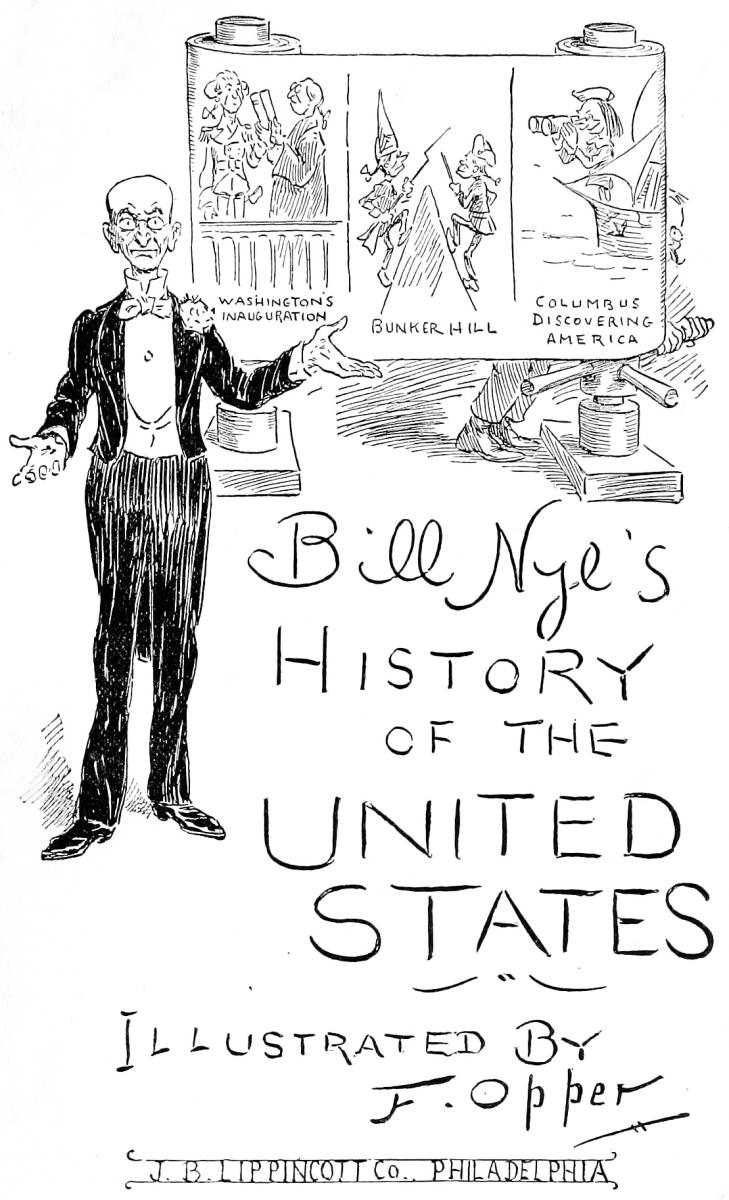
I encountered a familiar name in a surprising context recently. I was leafing through The War on Modern Science (1927), Maynard Shipley’s review of the recent fights over the teaching of evolution in the United States. In the chapter on “Mississippi’s Humiliation,” recounting the passage of Mississippi’s antievolution bill, there was a quotation attributed to E. K. Windham—apparently Esker Kearley Windham (1896–1970)—speaking against the bill in the House of Representatives. Here’s what it said: “As Bill Nye would say, the advocates of this bill want a law that will permit them to preach and practise [sic] any doctrine they desire, and one that will guarantee to them that no one else can do the same.”
I knew, of course, that Bill Nye served as laboratory assistant to Christopher Lloyd’s Doc Brown in the live-action segments of the Back to the Future animated television series in the early 1990s. It was this role that subsequently helped him get his own show, Bill Nye, the Science Guy. I was somehow under the impression that it was fiction, though. This quotation in a book from 1927 therefore gave me pause. Was Nye in fact tooling in a modified DeLorean back to 1926 Jackson, Mississippi, to fight against T. T. Martin (1862–1939), the Mississippi-born author of Hell and the High Schools (1923), and the Bible Crusaders of America, and—who knows?—perhaps a fundamentalist ancestor of the bully Biff Tannen?
Well, not really. In point of fact, Windham was referring not to Bill Nye (1955–) but to Edgar Wilson Nye (above; 1850–1896), a Wyoming lawyer and postmaster who adopted the pen name “Bill Nye” when he began to write humorous sketches for the newspapers. He took the semipseudonym from a poem by Bret Harte, “Plain Language from Truthful James” (1870), remembered for its line “The heathen Chinee is peculiar.” (The supposed peculiarity is ironic, for in the poem, the narrator and his friend Bill Nye, seeking to cheat a Chinese man at cards, are shocked to discover that he is cheating too. “Can this be?” asks Nye. “We are ruined by Chinese cheap labor,—”)
The nineteenth-century Bill Nye didn’t have the staying power of his fellow humorist Mark Twain (1835–1910), of course. But he was popular enough and prolific enough that it was reasonably common for people in the decades around the turn of the century to introduce a jokey turn of phrase or a pungent irony with “As Bill Nye said” or “As Bill Nye would say,” just as Windham did. (In researching the point, I was interested to stumble across a speech by Mark Twain in which the well-known evaluation of Wagner’s music—that it’s better than it sounds—was thus attributed to Bill Nye; it is often attributed to Twain, although Snopes already knew better.)
I don’t see any evidence that Bill Nye engaged with evolution any more seriously than his fellow humorist (and my cousin) Ambrose Bierce (1842–1914?), although his “How Evolution Evolves” (1881) was amusing. Purporting to be a paper delivered before the Academy of Science and Pugilism, it claims to “lay bare the whole hypothesis, history, rise and fall, modifications, anatomy, physiology[,] and geology of evolution,” relying on “such works as Huxley, Herbert Spencer, Moses in the bulrushes, Anaxagoras, Lucretius[,] and Hoyle”—the last presumably the authority on card games Edmond Hoyle (1672–1769) rather than the astronomer Fred Hoyle (1915–2001).
Nye continues, in “How Evolution Evolves,” to insist on the importance of evolution and the calamity of its neglect: “here in Erin Prairie,” he laments, “where progress and some other sentiments are written on everything; here where I am addressing you to-night for $2 and feed for my horse, I met a little child with a bright cheerful smile, who did not know that evolution consisted in a progress from the homogeneous to the heterogeneous.” (That definition, I’m afraid to say, accurately reflects Herbert Spencer’s characterization of evolution.) So immersed is he in doing so, in fact, that he never actually gets around to the task of talking about evolution itself—which of course is the joke.
It’s good to know that any modern Windham faced with the task of denouncing antievolution legislation—and it is doubtless on its way—can rely on a modern Bill Nye, and rely on him for more than just a parody of a traveling lecturer on evolution who can’t be bothered to address the topic. In Undeniable (2014), Bill Nye writes, “Evolution is one of the most powerful and important ideas ever developed in the history of science.…The great questions of evolution bring out the best in us: our boundless curiosity, and our boundless ability to explore. After all, evolution made us who we are.” That would be a nice quotation for a legislator who supports science education to commit to memory.

